Electrification needs research with a systems perspective
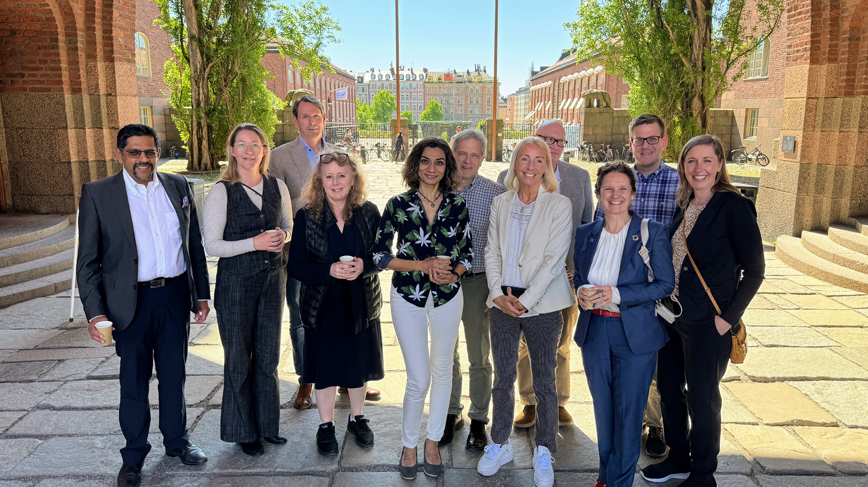
At the end of May, KTH Energy Platform hosted the Swedish Electromobility Centre’s (SEC) programme council meeting at KTH. Programme council meetings are held regularly at programme partner sites and on this occasion it was combined with a study visit to the Integrated Transport Research Lab.
The SEC is a national competence centre for electromobility that brings together academia and industry. It conducts research into all aspects of electromobility, including intelligent vehicles and systems, electric powertrains and charging and energy storage, the environment, and interaction between vehicles and power grids.
The need for a systems perspective
The agenda for the SEC’s May meeting included evaluating applications for the SEC’s latest call for proposals.
“Our latest call for submissions was aimed at projects with a systems perspective that combine more than one of our five themes. The aim is to address the bottlenecks we see in today’s implementation of electromobility at scale,” says Linda Olofsson, SEC Director.

KTH is an SEC partner and focuses on two of the centre’s five themes: Professor Göran Lindbergh leads Energy Storage and Associate Professor Luca Peretti heads up Electric Drives and Charging. The three other themes are Intelligent Vehicles and Systems, Environment and Society, and Vehicle-Grid Interaction.
“We have a number of prominent KTH researchers who participate in our various research themes and hope to attract even more in the future. Above all, we see a need for research with a systems perspective that can help bring everything together,” says Olofsson.
The meeting was hosted by KTH Energy Platform and its director, Lina Bertling Tjernberg.
“Competence centres are typically vital in driving progress as they connect academia and industry on relevant issues that move us forward. Several SEC partners are world leaders in their fields and KTH can contribute in several ways with new knowledge, including in fields such as electricity networks and electrical engineering,” says Tjernberg.
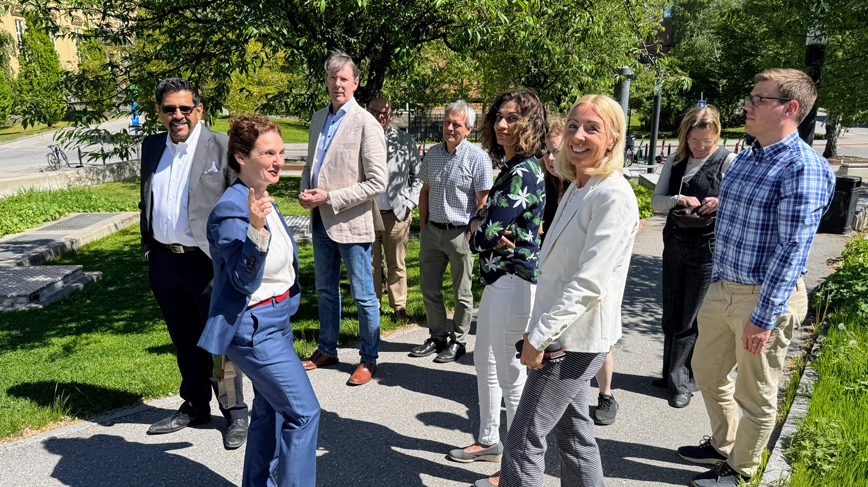
Multiple barriers identified
Electrification will involve a major transformation of society, especially in the transport sector. To ensure progress is as smooth as possible, several obstacles need to be addressed. These include the expansion of an optimal charging infrastructure, the current limited capacity of the electricity grid, and the potential integration of electric vehicles and the grid.
“For example, we need to find more ways to support haulage companies in their transformation to electric operations. For them, it’s important to find ways to integrate vehicle charging into their logistics flows. We also need to find new ways to combine batteries with other solutions such as electric roads and hydrogen operation,” says Olofsson.
Energy management of vehicles themselves also needs to become simpler and more easily understood to avoid what is commonly known as range anxiety.
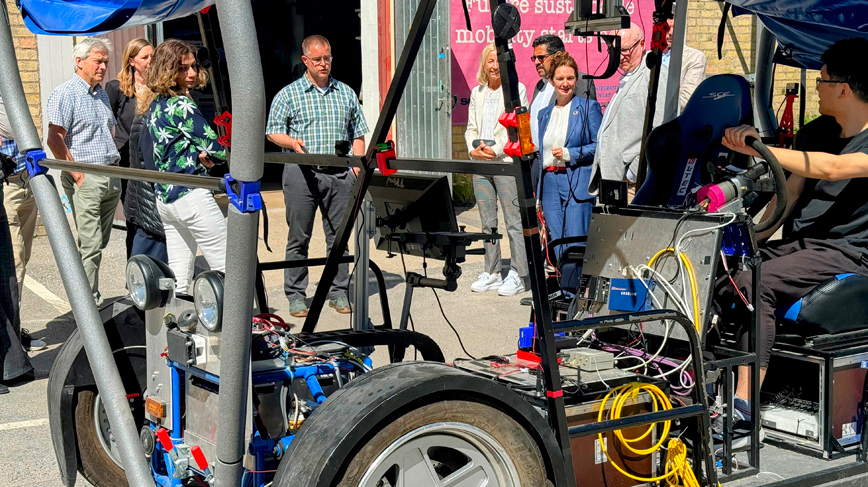
ITRL study visit
The SEC meeting was combined with a study visit to KTH’s Integrated Transport Research Lab (ITRL). After a sun-drenched tour of the campus, meeting participants were welcomed by Gyözö Gidofalvi, researcher at the School of Architecture and the Built Environment, with PhD students Frank Jiang and Bhavana Vaddadi.
Everything from remote automated vehicle operation to projects aimed at increasing the use of electric machines in the construction industry were demonstrated in the lab. Several developers are participating with the City of Stockholm in the latter project, which is focused on the development of the Persikan neighbourhood on Södermalm in central Stockholm. Some 1,200 homes are currently being built at the site in a project that runs more or less entirely on electricity. Electric wheeled excavators and bulldozers are among the machines used at the site.
“We create templates for construction projects in the form of digital twins to optimise vehicle charging and tools, for example with the correct scheduling of tasks,” says Gidofalvi.
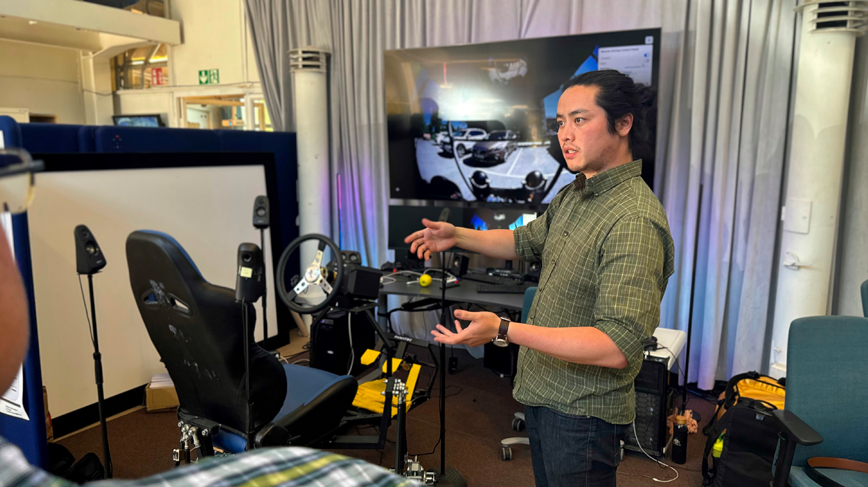
One of the ITRL projects that has received support from the SEC is the Cost-benefit , Optimized Charging Infrastructure (LOLA) feasibility study in which a method was developed to model the expansion of an optimal charging infrastructure that included charging stations and electric roads. Learnings from the project are now being taken forward in the Tracer project with partners such as Scania and the Swedish Transport Administration.
“In Tracer , we focus on the advantages and disadvantages between charging stations and electric roads for heavy transport. Today, we have a very complex situation in which several parallel infrastructures are being built by actors who have very different capacities and objectives,” says Gidofalvi.
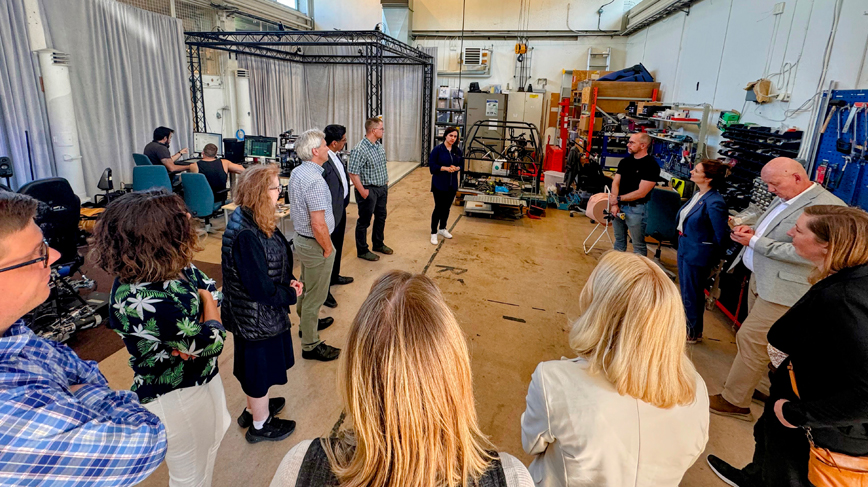
The SEC is based at Chalmers University of Technology and, in addition to KTH, its academic partners include Linköping University, Lund University and Uppsala University. Several companies also work closely with the SEC; and it conducts activities throughout Sweden, Olofsson stresses.
“We work very actively to connect the entire country’s competence in electromobility, in no small part to provide the best conditions for our doctoral students, for example through a national network,” she explains.
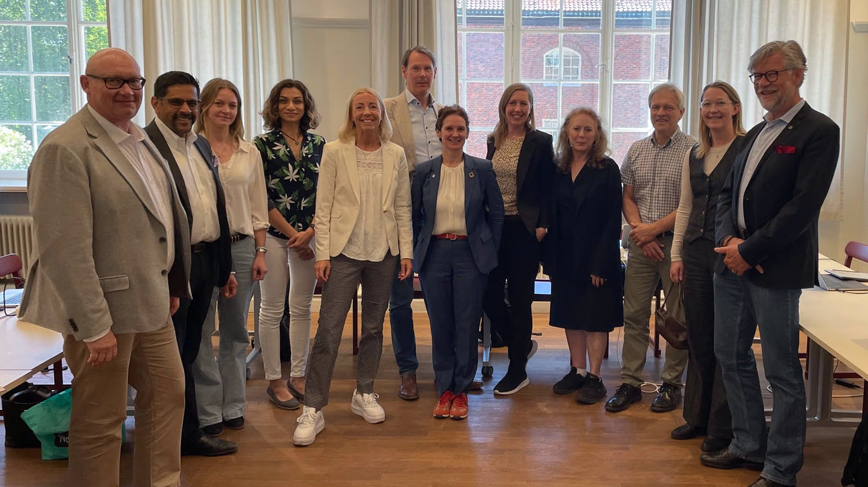
Text: Magnus Trogen Pahlén
Photo, except last picture: Magnus Trogen Pahlén , Lina Bertling Tjernberg

